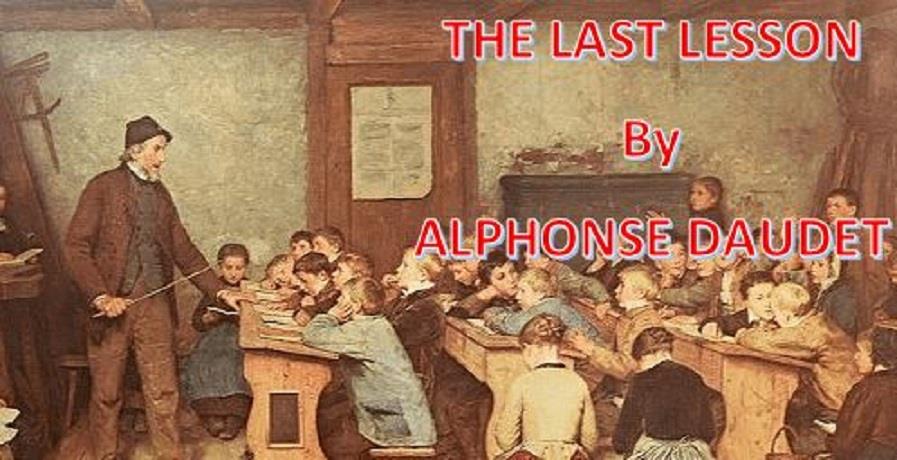
What A French Story Has To Say To Kashmir
What a French Story Has to Say to Kashmir
By Tabassum Haroon
While teaching a class thousands of kilometres from Kashmir, I often find myself speaking with emotion about Alphonse Daudet's short story The Last Lesson.
It tells of a small French village, Alsace and Lorraine, where people wake up one morning to learn that they can no longer study their language.
ADVERTISEMENTThe occupying power has banned French, replacing it with German. That final day, their teacher, M. Hamel, gives his last lesson in French. The children, who once skipped his class, now listen with tears in their eyes. The villagers, too, crowd into the room, wishing they had valued their language more when they had the chance.
Each time I discuss this story, I look at my students and ask,“How would you feel if one morning you were told that you could no longer speak your mother tongue?” The room goes still. After a long pause, one student whispers,“Detached.” Another says,“Uprooted.”
Those two words always stay with me. They describe not only the grief of Daudet's villagers but also something I feel about Kashmir today.
In many ways, we are living our own version of The Last Lesson: slowly, silently, forgetting our mother tongue.
Over the years, I've watched Kashmiri slip away from daily life. English and Urdu are celebrated, while Kashmiri is dismissed as old-fashioned, even embarrassing.
I still remember speaking to a shopkeeper in Kashmiri and hearing him respond in Urdu, as if my words carried some social shame. That small moment said everything about the shift we're living through, a silent (and dangerous) loss of linguistic confidence.
I have always felt blessed to know many languages, but Kashmiri is the one that feels like home. It is how my grandmother told stories, my parents scolded and comforted me, and my friends teased me growing up.
English connects me to the world, but Kashmiri connects me to myself.
Yet, I see a strange pride growing among some Kashmiri parents who boast that their children“don't understand a word of Kashmiri.” They say it with a smile, as if their child's inability to speak their mother tongue is a sign of progress. I often wonder what progress means if it comes at the cost of our roots.
When parents do that, they plant an invisible seed of shame. They make their children believe that their mother tongue is something to hide. That seed grows into a kind of lifelong detachment. You can teach a child every global skill, but if you disconnect them from their language, you take away their confidence in who they are.
A child fluent in Kashmiri can learn any language easily because they already have a foundation of expression and eloquence. A child who loses their first language loses the instinct to belong.
As I tell my students, language is essentially about worldview than words. It carries our humour, silences, and the way of seeing life.
The irony is that we, as Kashmiris, have one of the most lyrical and ancient languages in South Asia, but we treat it as disposable.
According to the 2011 Census, around 6.7 million people identified Kashmiri as their mother tongue. But experts warn that among younger generations, active fluency is rapidly falling. The language now faces what UNESCO once called a“definitely endangered” status, spoken by elders, but fading among children.
The decline is visible everywhere: in classrooms, where English dominates; in homes, where parents mix Urdu or Hindi; in cities, where Kashmiri words sound out of place. But, all is not lost.
Language has a way of surviving through the smallest acts of love.

Legal Disclaimer:
MENAFN provides the
information “as is” without warranty of any kind. We do not accept
any responsibility or liability for the accuracy, content, images,
videos, licenses, completeness, legality, or reliability of the information
contained in this article. If you have any complaints or copyright
issues related to this article, kindly contact the provider above.

















Comments
No comment